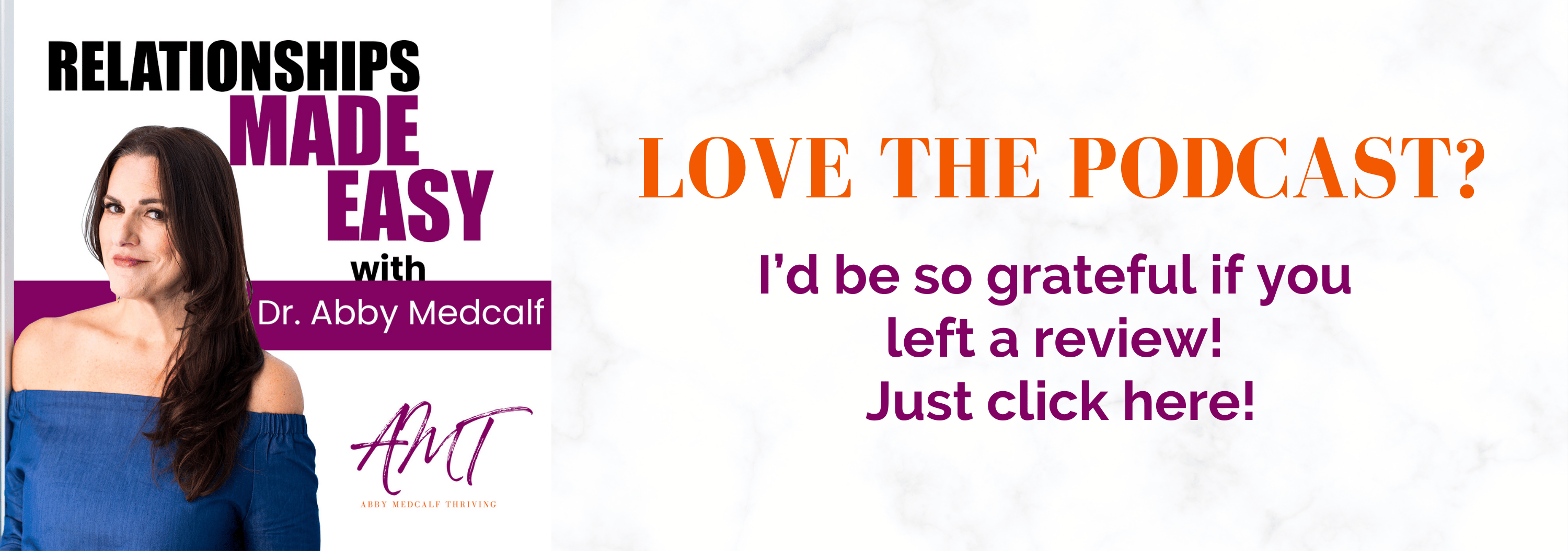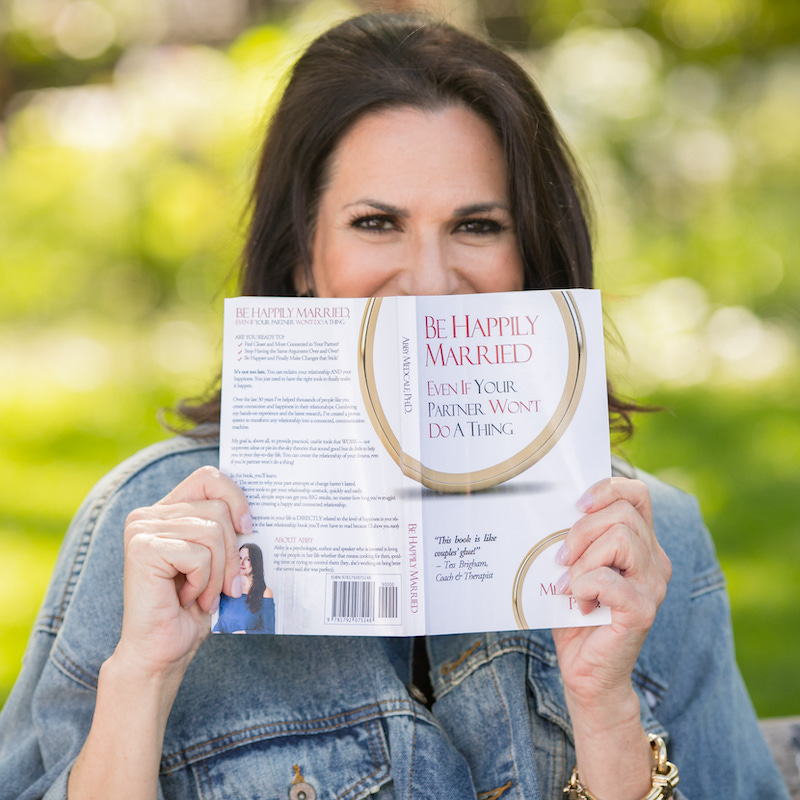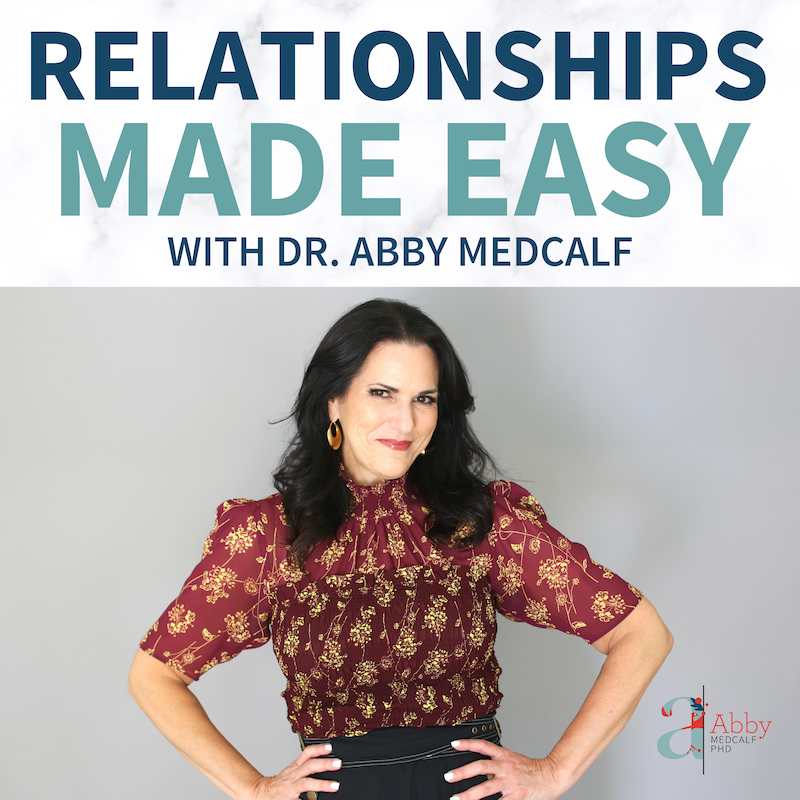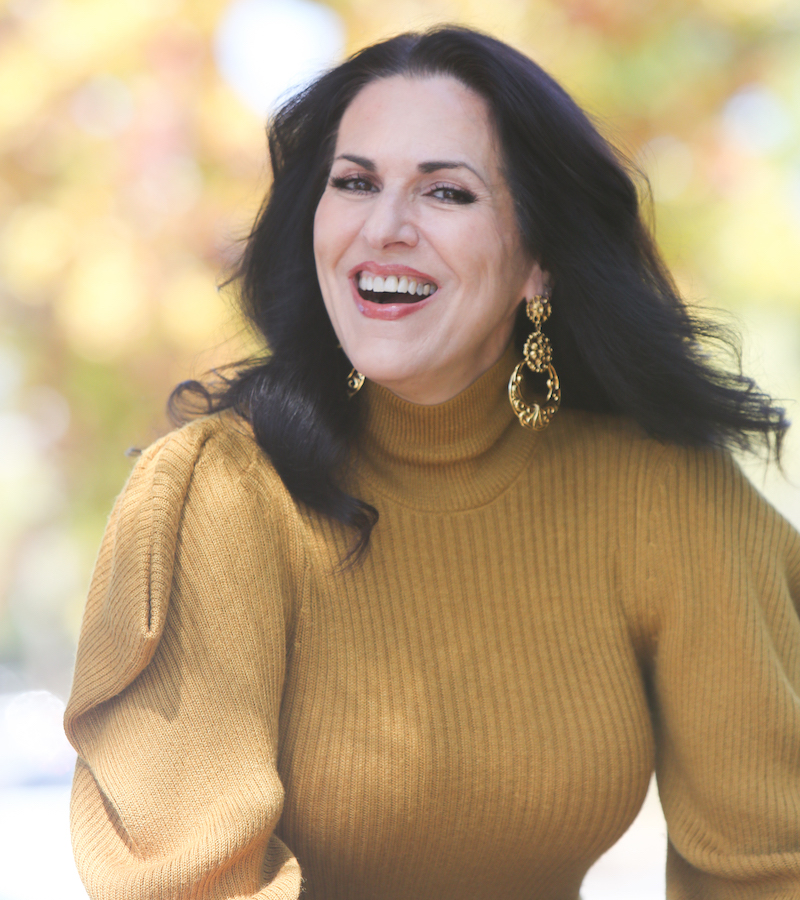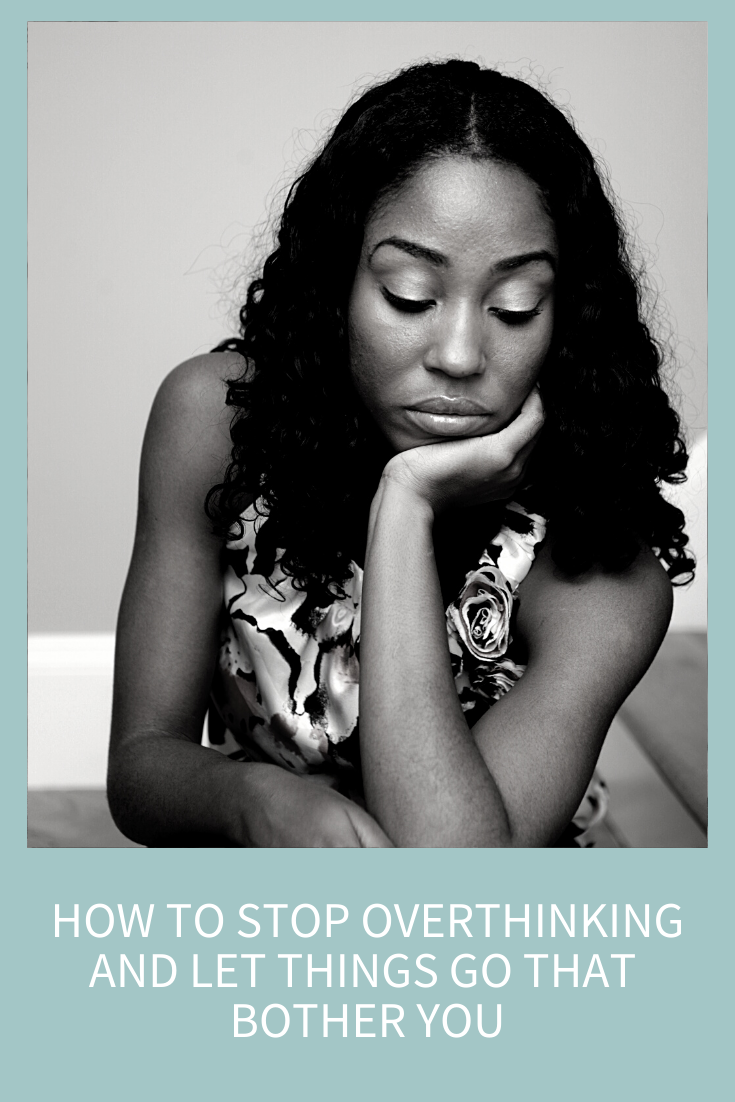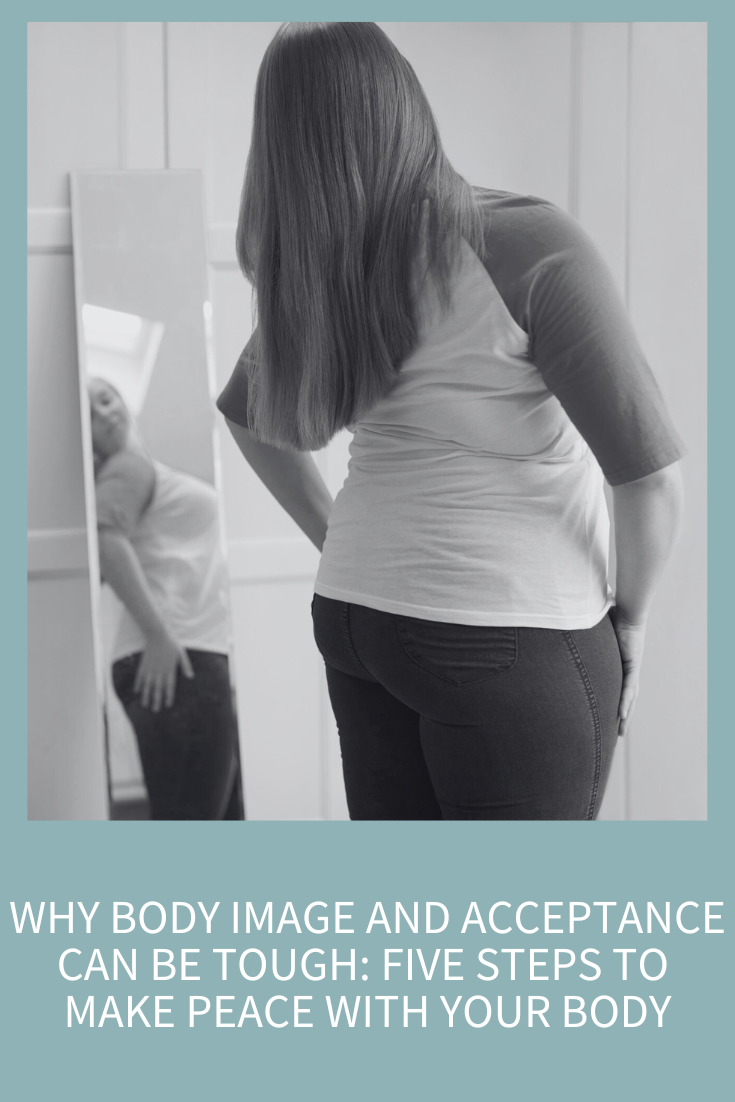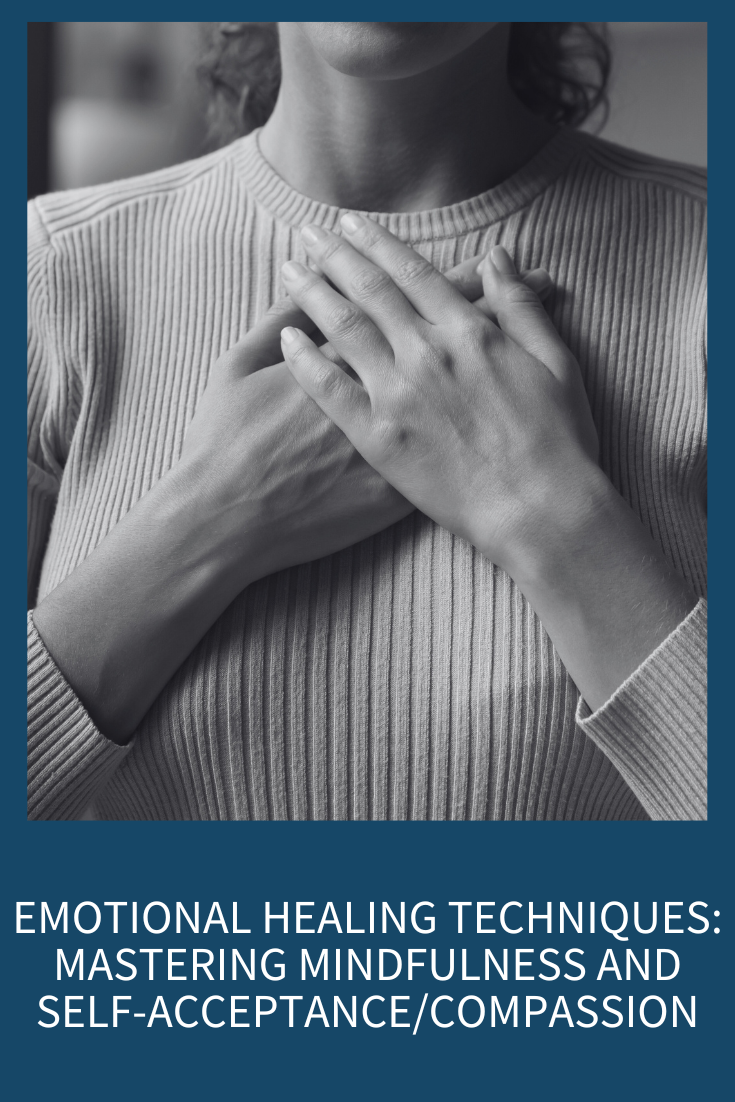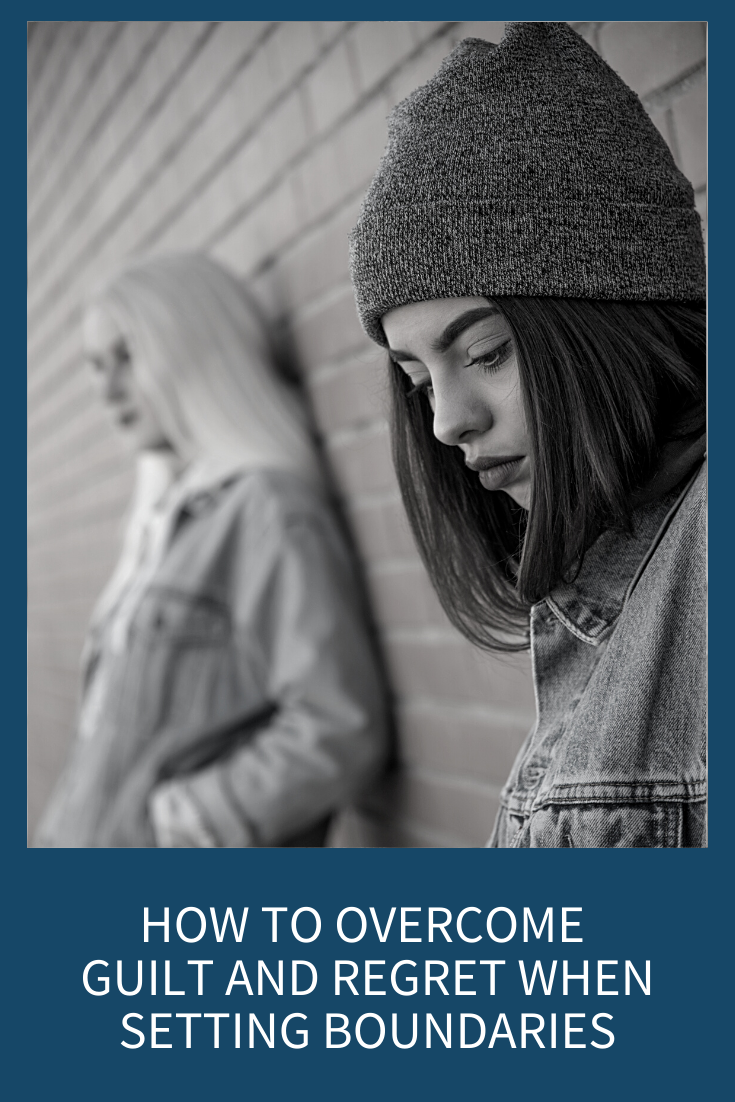
We’ve all been there. You set a healthy boundary with someone and feel good about it for about five minutes, and then the guilt begins to set in. You start thinking about how the other person is feeling and whether you’ve upset them. Or maybe now they’re angry and you’re regretting having said anything. If this is you and you’re ready to overcome your guilt and regret when you set boundaries, then you’re in the right place. Today you’re going to learn why you feel guilty and regretful and my three-step process to overcome guilt and regret when setting boundaries.
10-minute read
Prefer to listen to the podcast? Click here.
One of my favorite books is called The Happiness Advantage by Shawn Achor and I thought it would be a great idea to have him come on the podcast to chat about his research and ways to be happy. I sent a thoughtful (and I thought fabulous) pitch and here’s the response I got:
Dear Abby,
Thank you so much for reaching out to invite Shawn on your podcast. We love the work you are doing and thank you for being a bright light in the world.
Shawn is honored to be invited. Unfortunately, with a full speaking schedule and a young family, plus the work he is doing right now through his nonprofit to support educators during the pandemic, Shawn isn’t able to take on anything new.
We wish you success with your podcast. We need people like you leading the way forward!
This response was so lovely that, for a minute there, I didn’t register it as a “no!”
Saying “no” to people in a loving, clear way is an art. I would say that Shawn Achor’s people are in the Rembrandt category, while I often feel like I’m drawing on a wall with crayon. I’m getting better but sometimes when I say “no” to someone, I notice that I’m feeling guilty (“I’m being selfish”) or self-conscious (“What are they going to say about me now?”). Those fear-based responses just create more fear-based reactions from others.
Hence a conversation I had a few years ago that went something like this:
Parent I don’t know at my kids’ school in a kind of bossy voice: “We need help with the school bake sale. Can I put you down to take a shift from 1:00 to 4:00 on Friday?”
Me scrambling for something to say: “Ummm, I really can’t. I’m just swamped right now and I’ll be at work.”
Other parent now very annoyed: “Well, we’re all swamped so if everyone had that attitude, we’d never raise money for the school. All of us are making sacrifices!”
If I could have channeled Shawn Achor, my clear and loving response would’ve been: “Thank you so much for all you’re doing for the school. I can’t tell you how much I appreciate it! I’ve already reached my max for the volunteer hours I can commit to right now, but please give me plenty of notice in the future so I can make a plan to help.”
I would have then walked briskly away with all good feelings intact (instead of what actually happened, which included skulking off in shame and berating myself and being resentful of this other parent).
It’s important to know our boundaries and to share them with others in a way that shows love, not fear. We don’t have to feel bad about it or make excuses or justifications. “No” is a complete sentence and can be said with a smile and light heart.
But how do we get there? First, let’s examine why you’re feeling guilty and regretful and then we’ll talk about how to fix it.
The Three Reasons Why You Feel Guilty When Setting Boundaries
1. Setting Boundaries is Selfish and Mean
You were taught either directly or indirectly that it’s selfish to put your own needs first. In other words, prioritizing yourself over others is just plain wrong. And, if you believe you’re a good person in the world (and who doesn’t want to believe that?), then you can’t be doing that!
You also might think it’s mean to set a boundary because of how others react. It’s actually the opposite. When we set loving boundaries, we stop feeling resentful and it actually helps us feel more compassion for the people in our lives.
2. What Will They Think When I Set Boundaries?!
You’re worried about what others will say about you. You might hate disappointing other people. When you say “no” to coming over to help out on Sunday at your parent’s home, you can feel their disappointment and you start to feel guilty. You start saying how sorry you are over and over and explaining even more why you can’t make it. You feel the need to justify in a big way why your own needs should take precedence.
We’ll often hurt ourselves because we want others to like or approve of us or because we don’t want to deal with the backlash. Avoiding is no way to have a close relationship with anyone.
3. Will They Still Like Me After I Set Boundaries?
We learn boundaries from our families. I’ve talked about boundaries on a continuum of thin to thick. In those families where the boundaries are too thin, we see enmeshment. You can’t tell where one person starts and the other begins, so there are no boundaries. You’re expected to do whatever’s asked, no matter what. Boundaries end up feeling super uncomfortable and even scary.
When you draw a boundary in a more enmeshed family system, folks get very upset. You’ll hear things like:
- If you cared about me, you’d X.
- Mom’s lonely. You need to call her every day. It’s not a big deal.
- It was your choice to get that new job. You shouldn’t miss family functions because of it.
- Wednesday night dinners are sacred. I can’t believe how selfish you’re being saying you want to go play soccer instead.
In her book, The Gifts of Imperfection, Brené Brown says: “It’s also impossible to practice compassion from a place of resentment. If we’re going to practice acceptance and compassion, we need boundaries and accountability.”
Why Setting Boundaries and Holding Boundaries is Important
Setting boundaries and holding them are the key to true emotional closeness and intimacy. When you don’t set or keep a boundary, you end up feeling fear-based emotions like resentment, helplessness, hopelessness, rage, frustration and exhaustion. You can’t build a healthy relationship on these feelings.
Also, when you don’t hold a boundary, you’re being fake. You’re not showing the other person the true you. When you don’t say what you really feel and need, you’re not speaking your truth and you end up feeling disconnected and isolated. How is this helping your relationship? How is this truly serving this other person? You’re actually disconnecting from them!
The Three-Step Process to Overcoming Guilt and Regret When Setting Boundaries
First things first, it’s going to take a bit to stop feeling guilt and regret when you set boundaries. If you practice this process long enough, you’ll find that the feelings stop coming up or, when they do, they’re not as strong and don’t last as long and you’re able to dispense with them pretty efficiently.
Second, you need to make sure that you’re making healthy boundaries and practicing loving detachment before you start this process.
The goal of this process is simple: move you from a fear-based emotion and reaction (anger, helplessness, guilt, regret, frustration, resignation, resentment) to a love-based emotion (compassion, understanding, patience, love, kindness).
Step 1: Acknowledge How You Feel in the Moment When Setting Boundaries
As usual (and I just can’t stop talking about it, can I?) you’ve got to be mindful to notice that you’re feeling guilt, shame or regret in a moment. If you know you need to set a boundary, this is a bit easier because you can set yourself up for success.
Obviously, this is tougher when a boundary is being tested on the fly (like in the example I gave earlier of me being asked to help out with the bake sale). I’m going to tell you this: likely the very first thing you feel is anger because this person is knowingly or unknowingly pushing on your boundary. Your job is to notice that anger so you can stop it in its tracks. You might be such an epic people pleaser that you don’t even notice any feelings and just jump into action, but you definitely have them. You’ve just become expert at ignoring them. Every thought creates some feeling. It’s important to stop and acknowledge what’s going on for you in that moment.
Do this without judgment or impatience. Acknowledge the feeling and be with it for a moment.
Step 2: Focus on Empathy, not Sympathy
When we feel sympathy for someone, we get into “doing.” For example, if your best friend’s dad dies, you feel sympathy for them. You get into action mode and think about what you can do to make things better or easier for your friend. You might call and check in every day or cook meals. This is a lovely response, of course.
However, when you’ve set a boundary, sympathy is NOT a healthy response. Instead, you want to focus on empathy. This means you have compassion and patience for the other person’s experience, but you don’t take it on.
Here’s your secret way to do this:
Instead of thinking:
“What can I do to make this better?”
shift your thought to:
“What can I think to make this better?” Then take a breath and spend a minute shifting what your thoughts are about what’s happening and come from that compassionate, empathetic place.
I find it easiest to have a mantra. It’s often too much at times like this to have to remember “all the things” Abby said to do. Instead, have a mantra ready, which will allow you to stop your fear-based reaction. The mantra needs to be easy for you to remember and it needs to be something you believe.
- Setting boundaries is kind and loving.
- Setting boundaries helps people see the real me.
- My boundaries are healthy and don’t need an explanation.
- I’m setting boundaries not building walls.
- I have compassion in this moment for both of us.
- We’re all doing the best with the tools we have.
- I love this person, so I’m setting a boundary.
- Feelings aren’t facts. This guilt is an old belief. My new belief is that it’s healthy to feel compassion instead of resentment for this person.
- I’m not responsible for anyone else’s feelings.
- It’s not my responsibility to make anyone else comfortable. It’s only my responsibility to be kind to myself and others.
Learn more about setting boundaries and not walls here:
Step 3: Hold Your Ground with “Yes, and”
When you hold your boundary with love, you’ll feel different because you’ll be getting a different response, which helps you not feel guilty.
When you don’t stop that initial fear response and react from a place of fear, that’s when you get into trouble with the other person’s reaction (when you’re in fear, they’ll be in fear). So, do NOT:
- Say you’re sorry — never apologize for setting and holding a boundary
- Argue
- Justify
- Explain
- Ask to be understood or ask for permission
- Say “but”
Instead, it’s a “yes, and…” In real life this can look like:
- I can feel that you’re disappointed that I won’t be coming with you and I still need to stay home that day.
- It seems you’re angry that I can’t help on Saturday. I understand and definitely give me a month’s notice in the future and I’ll try my best to help out.
- This is such a worthy cause, and I’ve already earmarked my donation money for the year.
- I can’t plan the party and I’m happy to be part of the clean-up crew that day.
Remember, you can’t control their reactions. Your job is to make sure you’re being kind, patient and even loving when you say what you need.
Resources
How to Stop Caring So Much About What Other People Think
The 3 Best Tools to Use in Every Relationship
Boundaries: How to Identify Them and How to Hold Them
The Secret to Making Boundaries Not Walls
How to Practice Loving Detachment
How to Make Mindfulness a Consistent Habit
The Complete Guide to Effective Communication in Every Relationship
Brené Brown, The Gifts of Imperfection

